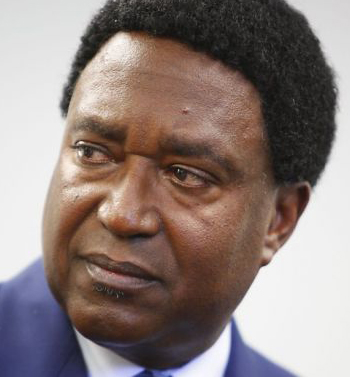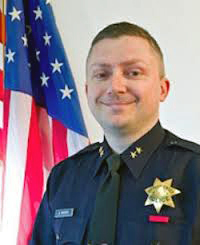Shake-Up at Oakland Police Department
May 17, 2013
Posted in Police-Public Safety
By Ken A. Epstein
Most of the Oakland Police Department’s top commanders have resigned or been replaced, just a week after Oakland’s new federal overseer issued a blistering report criticizing Oakland police leaders for the department’s failure to institute policies and practices that protect residents’ constitutional rights.
“All the top people were removed or reshuffled. This is a new command staff, and we will find out now if they can work,” said attorney John Burris in an interview with the Post.
“We hope they will move the department in the right direction, that they will support the NSA and hold officers accountable and improve the relationship between the community and police department.”

Burris and his partner James Chanin have been involved in every stage of federal court negotiations since they represented the 119 plaintiffs in the Riders Case who sued the OPD in 2000, leading to the 2003 Negotiated Settlement Agreement (NSA), which brought Oakland under the oversight of Judge Thelton Henderson.
The first to leave in last week’s shakeup was Chief Howard Jordan, who announced he was resigning for medical reasons. He was followed by Anthony Toribio who, after two days as acting chief, announced Friday that he was voluntarily accepting a demotion to a job as a captain.
Sean Whent, a 17-year department veteran, was named as the new acting chief while the city conducts a national search for a new chief. Whent has been a deputy chief overseeing internal affairs, risk management and personnel assessment, a major focus of the court order on police misconduct that Frazier was brought in to enforce.
Besides Whent, three new deputy chiefs were named, leaving only one of the five top people in the department who held onto his position.
Mayor Jean Quan and City Administrator Deanna Santana said they made their decisions after meeting Wednesday with Thomas Frazier, the federal court-appointed compliance director who began overseeing the department in March, and Robert Warshaw, the court-appointed monitor.
In his Remedial Action Plan released May 1, Frazier said that police department top brass has not held officers accountable for misconduct. “Executive leadership has permitted members of the organization to believe that (unacceptable) behaviors … are both tolerated and acceptable.”
“It did not surprise me that the chief and his assistants left,” said Burris. “(Frazier’s) report really condemned the command staff for not providing the kind of leadership that was necessary to get the department into compliance and to change the culture of the department. (The report) was a very powerful document, (which showed) the command staff was in jeopardy.”

The new leaders will be expected to bring the city into compliance with the NSA: “cut down police shootings, cut down racial profiling, cut down drawing of weapons and hold officers accountable when they violate the general orders.”
Burris said he was optimistic that OPD will make the changes the judge is ordering. “If it were just left to the officers, no, I wouldn’t be optimistic,” he said.
“Now we have a compliance director who can make hard decisions, who can be ruthless in making those decisions. He’s real fair and tough minded. That’s what’s important.”
A lot of money and time has been spent over the past decade, and the city is still not in compliance with the NSA, Burris said. “They haven’t made the progress that I thought the case would make. I’ve given over 10 years of my life, monthly meetings, many court appearance, and we’re not as far along as we should be. It was supposed to end in five years, and now we’re 10 years in.”
Burris explained that Frazier’s report has a different focus than the report submitted by the city’s police consultants of the Bratton Group, which seeks to reorganize local policing to better respond to burglaries, robberies and shootings.
“The Bratton people were looking at how to improve the quality of policing as it relates to crime reduction. That’s different than the issue that we have, which has to do with compliance with constitutional policing,” Burris said.
“The focus of the NSA is making sure that police work in a constitutionally mandated and correct way – how to hold the department accountable, how to stop constitutional violations.
“We’d like to have both, good (constitutional) policing and reduction of crime.”
Looking at police practices that he was hoping would change, Burris pointed to the ongoing issue of racial profiling, which the department is still not adequately documenting.
“They have to stop doing racial profiling and begin treating the people in the street with respect,” he said. “ If you can do that, you will improve the relationship between the police and the community, and they will help you fight crime.”
There are far too many cases, he said, where people are needlessly “stopped, searched, put on the ground, handcuffed. This is a fact, and this is what we have been trying to fight all these years.”
According to Sean Maher, the mayor’s communication director, “ “Mayor Quan, City Administrator Deanna J. Santana and Interim Police Chief Sean Whent are united in tackling these (NSA) issues head-on. Reducing crime and enhancing our constitutional policing are complementary goals, and this is something Interim Chief Whent understands very well. As Mayor Quan has often said, police cannot function effectively when they do not have the trust of the communities they serve.
“As we accelerate our progress toward full compliance with the NSA, we know it’s important for people in our neighborhoods to feel that difference directly and for our police to build stronger relationships with those communities.”